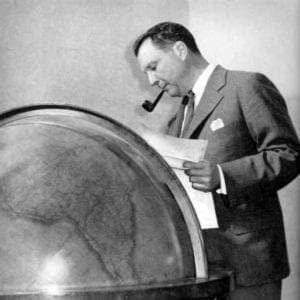As Australia readies itself for a new lease of life in its ultra-luxurious hotel sector, the industry is debating whether it needs a new rating system to cater for this new era of development.
Over 60 hotels from established luxury brands are planned across the country in the coming years. “The developers of these hotels believe that the time has come to define a new category of luxury and they are pushing for a six-star rating to differentiate themselves,” says Julian Whiston, Executive Vice President – Strategic Advisory, JLL Hotels & Hospitality Group. “The current debate centers on whether a new rating system needs to be created to cater for this new era of development.”

The Ritz-Carlton is planning one such luxury hotel in Melbourne, and other similar projects are slated for Perth’s Elizabeth Quay and Brisbane’s Queen’s Wharf.
“Among the most ambitious properties entering the market is Crown Resorts’ hotel in the Barangaroo precinct, which billionaire James Packer has declared to be the best in the world,” says Whiston. “This suggests an even higher rating, since the most decorated hotels such as the Burj Al Arab Jumeirah in Dubai already claim to be seven stars.”
A star-struck history
As more high-end hotels seek to make their mark, the Australian hotel industry has evolved to better meet consumer demands and tastes, as seen from the launch of ‘lifestyle brands’ that focus on ambience rather than room size or specific facilities. A more striking example is that of former three-star motels, such as Bannisters at Mollymook and Halcyon House at Cabarita, transforming themselves into A$500-a-night (US$380) boutique hotels.
“In the early days of the Australian hospitality industry, hotels and motels lived and died by the star ratings provided by the motoring associations,” says Whiston. “Each pronouncement was treated like the gospel truth, although the stars were accorded based on property facilities and disregarded other embellishments like ambience, service and style.”
Such was the case until the 1990s, when chain hotels arrived, setting their own brand standards. Later, the internet also brought with it review sites like TripAdvisor, giving consumers the power to rate accommodation options, consequently reducing the significance of official ratings. ‘Self-ratings’ made an appearance as well, with many booking sites allowing hotels to ‘self-rate’ rather than pay for an official star rating.
This variety in rating systems has led to multiple hotels claiming five-star status or beyond, with each benchmarking its claim against a different point of reference from its competitor.
Stars that shine and stars that burn
Today, the official rating system is making a comeback, as hoteliers resist the arbitrariness of guest-led ratings. Key to their argument is the call for greater fairness and representativeness for both travellers and the industry alike.
The significance of an official rating system is clear: For independent boutique hotels, it is an important investment that endorses its quality. The difference between an official rating of four and five stars can make a big difference to the bottom line of these hotels.
On the other hand, such objective standards cut both ways. High star ratings typically mean high prices, and that can work against such hotels during economic slowdowns. Not only will leisure travellers choose more reasonably priced options but corporations will also look for lower cost lodgings to demonstrate restraint to their shareholders.
Changing how consumers view luxury
“With the number of brands touting five-star status these days, a new category may be necessary to differentiate the new breed of luxury hotels. If six-star is not feasible, then at least five-star plus,” says Whiston.
As a response to the noise around ratings, the industry has sought to introduce a new paradigm: looking at hotels in terms of ‘budget’, ‘economy’, ‘midscale’, ‘upscale’ and even ‘upper upscale’. Nonetheless, travellers and booking sites alike still revert to star-based systems, hoping to make their decisions based on some form of objectivity instead.
While it’s unlikely that the issues around the star-rating system will be resolved in the short term, it’s not stopping Australia’s hotels from raising their standards in pursuit of a new definition of luxury.
Source: Jones Lang LaSalle’s JLL Real Views.















